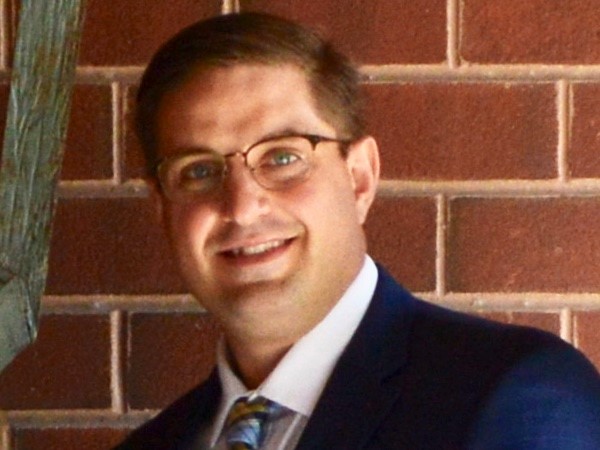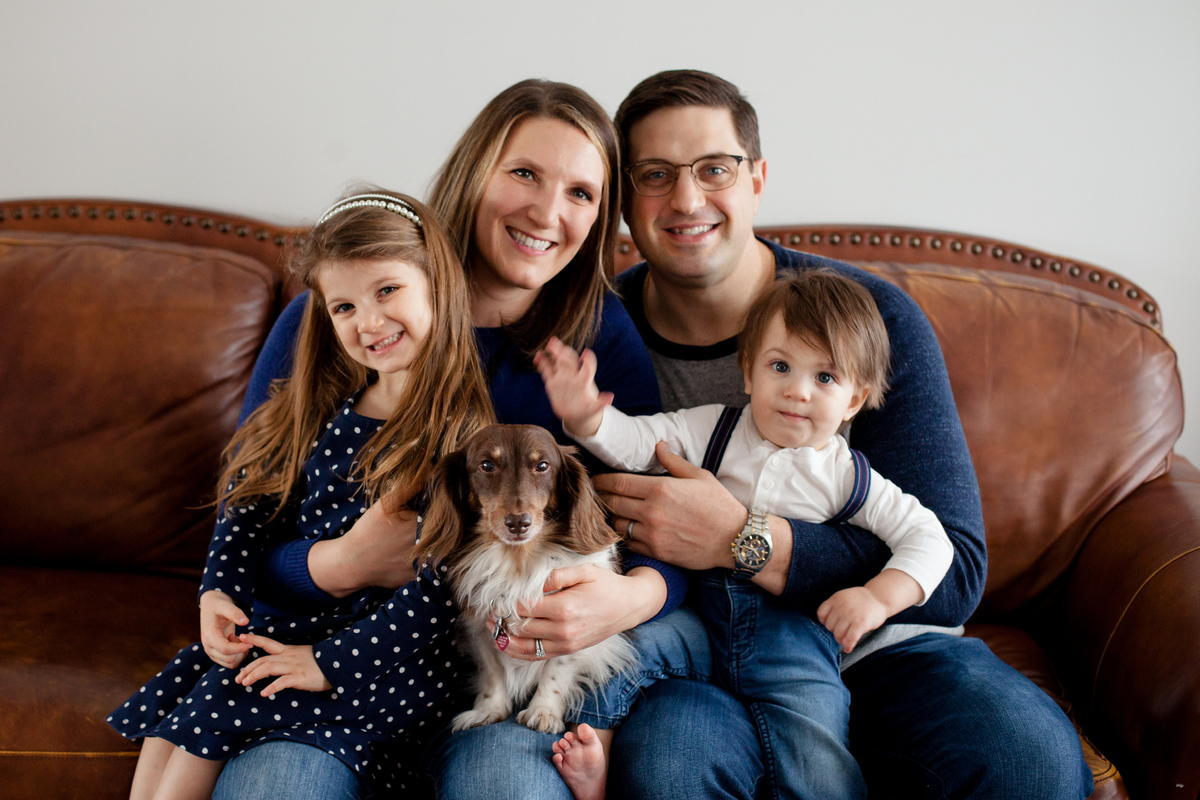Postdoc Q&A: Michael VanHeyst
Michael VanHeyst probably wouldn’t call himself scrappy, but he sure fits the description. His parents wanted him to go to dental school, but he declined several strong offers and pursued organic chemistry instead. After graduating Allegheny College, where he played football, he moved on to a low-profile lab with limited resources, learning to “grind out” great science under constrained circumstances. He earned his way to the MacMillan Lab, where he was a postdoc from 2014 to 2016. Today, he works for GlaxoSmithKline in Collegeville, PA. Family means everything to him, but so does work. He’s regularly at his desk at 6 a.m. (because he wants to be), but he’s not much into labels. When asked for his job title, he said: “Not sure. I think it’s on my email signature. I don’t really pay attention to it.”
AS A POSTDOC, HOW DID YOU DECIDE TO GO WITH THE MACMILLAN LAB?
I put a lot of trust in a friend who once told me that it’s up to me to go wherever I go to dig around and find cool things to do. And you can go to any lab and do that. But it was the culture and the science and the people at Dave’s lab that set it apart. The group there just had such high-level teamwork and synergy. They don’t let anyone fail. They know how to pick people up who need to be picked up, and they know how to push people when they need to be pushed.

Photo courtesy of Michael VanHeyst
WHAT DID YOU WORK ON THERE?
I was there when the juvenile stages of photoredox were just hitting Dave’s lab. It was definitely something I loved and wanted to be a part of. They had come up with a new technology for metallaphotoredox that enable what we considered a unique bond disconnection that opens up chemical space. I don’t think I fully realized the power of that and what Dave was “selling” until I got to places like this company, where I really understand what it means to have chemical diversity. It was really awesome chemistry.
WHAT WERE PRINCETON CHEM’S STRONGEST QUALITIES?
This is a testament to the faculty because I think the students there run the joint. I think the faculty have done such a great job recruiting and attracting top talent that the group culture leads itself, and I think that’s an awesome sign of leadership top-down. You don’t need a ton of influence by the faculty. Their groups understand the expectations and they guide themselves, and that’s something that I’ve taken with me into industry.
WHAT WERE THE CHALLENGES OF BEING A POSTDOC?
Basically, I enjoyed so many aspects of being there and the opportunities in front of me that I never viewed things as challenging. But I could say that one of the difficulties with being in a place like Princeton is that there are phenomenal scientists and people all around you. It’s a place where people excel. And you go through ebbs and flows of feeling like you’re keeping up with the pack, or falling back. I think that’s one of the great things about Dave’s lab. The lab had a pulse where if someone was falling back, they knew how to step in. But it is tough when you’re that person who needs a wing-up at times. I know I was.
WERE YOU WELL-PREPARED FOR YOUR INDUSTRY CAREER?
What I learned in Dave’s lab that ultimately prepared me for work was attention to detail, to exactness, to understanding hypothesis-driven design and what outcomes are going to drive new results, to really mapping out a plan before you even start. I think a lot of that has shaped me. And a lot of the other things I’ve already alluded to, like teamwork, leadership, and working within a group dynamic.

Photo courtesy of Michael VanHeyst
GIVE US A GENERAL DESCRIPTION OF YOUR WORK AT GSK….
My job at GSK as a Medicinal Chemist is to design and synthesize a molecule (drug) that is intended to help human health. What is unique about my job is that much of our time is prioritized first by which molecule to make (medicinal chemistry), and then how to make it (chemistry). As such, my background in organic chemistry is only a small part of accomplishing that task. At a higher level my job entails running a team that interfaces with multiple functions of the drug design platform to come to consensus on the direction of the program (which compound to make) and to deliver on that objective.
WAS THERE A TIME WHEN YOUR WORK REALLY HIT HOME?
I had the unique experience to see first-hand the people that we’ve helped in the pharmaceutical industry. My first manager – this was at Merck, where I was before this job – actually got a letter from a 10-year-old girl writing about one of the drugs we had for Hepatitis C that had just hit the market. She wrote a letter to our CEO – in crayons – that pretty much just said, “Thanks for helping my mommy.” It’s experiences like that that just keep you coming back for more.
WHAT FACTORS CAN YOUNG CHEMISTS USE TO DECIDE BETWEEN INDUSTRY AND ACADEMIA?
One of the best things about Princeton and my experience there was exposure. In my life, I hadn’t had a ton of exposure to what I could do with chemistry. What a place like Frick Lab and Dave’s group can do – and it’s not just Dave’s group, it’s Princeton – is offer exposure and options. We got exposure to industry. I’d been to Merck. I’d been to companies. People would come to Princeton to ask for our expertise, and seeing those interactions … that’s the awesome power of being in a place like Princeton. If you’re motivated, you can ask to do those things, to have that access. I have a lot of cousins going into college right now and my advice is the same to them. Four years ends, college goes fast, so start figuring out now what you want to do.
YOU’RE ONE OF THE LEAD U.S. RECRUITERS FOR GSK; WHAT DO YOU LOOK FOR WHEN HIRING A NEW SCIENTIST?
Everyone’s always interested in what you look for when you’re hiring, what background, what science? Well, you’ve got to have good science and you have to show problem-solving. But mostly you have to show that you’re excited. This should be a passion. I work with a ton of people who get exhilarated with trying new chemistry or helping with human health. So I don’t work – I enjoy myself. I surround myself with people who make this a walk in the park with your friends who are talking about science. If you love what you do, you’ll never work a day in your life.
